Search
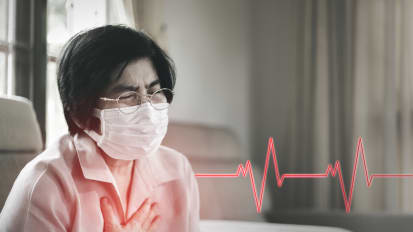 Video
Video
Comorbidities and COVID: Care for Patients With Heart Disease and Other Conditions
Breaking down the latest stats, cardiologist Clifton Watt, MD, sheds light on which chronic conditions raise the risk of serious consequences from COVID-19 infection. Video
Video
Keep Them on Their Feet: Vigilant Diabetic Care Saves Limbs
In response to rising rates of diabetes and related amputations, the co-directors of UCSF’s Center for Limb Preservation – which has a limb salvage rate of 92 percent – present a quick guide to detecting amputation risk. They include COVID-specific advice to prevent delays in diagnosis and referral.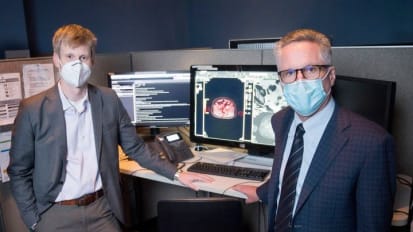 News
News
UCSF Researchers Help Gain FDA Approval for Prostate Cancer Imaging Technique
Method is a ‘game changer’ that should become the standard of care, say UCSF researchers who validated its effectiveness. Video
Video
Know Your Thyroid: Here’s Help With Understanding Nodules and Cancer
Thyroid disease is increasingly common. In this video, UCSF specialists clearly explain the basics of thyroid nodules and thyroid cancer, helping patients make sense of their treatment options, from monitoring to surgery to radioactive iodine.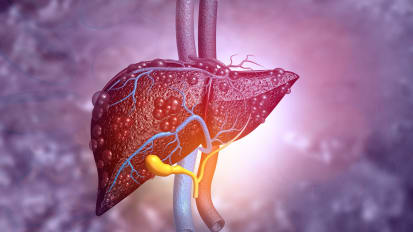 Video
Video
Update on Liver Lesions: What Works in Managing HCC
Based on clear metrics, transplant hepatologist Neil Mehta, MD, presents diagnostic criteria for hepatocellular carcinoma, then shows how UCSF’s HCC team reaches decisions on treatment for individual cases – with plans ranging from resection or ablation to downstaging drugs and transplantation. Video
Video
Headache Help: Making Sense of Migraines and a Multitude of Therapies
Neurologist Morris Levin, MD, director of the UCSF Headache Center, reviews the diagnostic criteria for migraines and other headaches, followed by a breakdown of preventive and acute treatments. Document
Document
Neurovascular Disease and Stroke Center
Providing initial evaluations, second opinions and follow-up care for the prevention, diagnosis and treatment of stroke and other neurovascular conditions.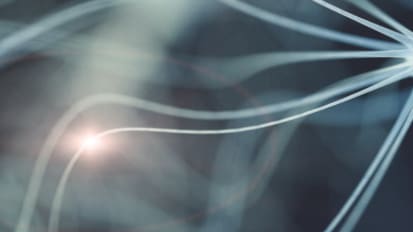 Document
Document
UCSF Certified as a Comprehensive Stroke Center
A LONGTIME PARTNER in ensuring the best care for your patients with neurovascular conditions, UCSF is now a certified Comprehensive Stroke Center, becoming the first such program in San Francisco to earn the Gold Seal of Approval. Document
Document
UCSF Ranked #10 for Cancer Care | Clinical Trials Update
We are pleased to announce that UCSF Medical Center has been recognized as the best hospital in Northern California for cancer care — and among the top 10 cancer programs nationally — by U.S. News & World Report’s 2020-21 survey of Best Hospitals. Document
Document
UCSF Improving Pre-Kidney Transplant Process
Deborah B. Adey, MD Medical Director, Kidney Transplant, shares some very exciting news regarding upcoming changes to the Kidney and Pancreas Transplant program. Document
Document
UCSF Cardiac Surgery Access and Consultations
At UCSF’s Cardiothoracic Surgery Program, we value the opportunity to partner with you in caring for patients with a wide range of cardiac conditions, from arrhythmias to ventricular septal defects. Document
Document
Now Scheduling Referrals Within 24 Hours
Quan-Yang Duh, MD, Chief, Section of Endocrine Surgery, UCSF, and Sanziana Roman, MD, Medical Director, Endocrine Neoplasia Clinic, UCSF, provide an update on safe endocrine surgical patient care at UCSF. Document
Document
Now Open UCSF Neurosurgery Clinic Los Gatos
UCSF is opening a pediatric neurosurgery clinic in Los Gatos, which will provide access to UCSF’s experts in children’s neurologic health, including brain tumors, epilepsy, cerebrovascular disorders, spine disorders and a wide array of other problems. Video
Video
A Common Threat to Life and Limb: Detect and Manage Peripheral Artery Disease
Michael S. Conte, MD, UCSF’s chief of vascular surgery, discusses the growing problem of PAD, subtleties of PAD signs, useful testing techniques, which patients to treat, therapeutic options, and how to educate your patients – especially diabetics – to safeguard their health. Video
Video
Get Current on COVID: Case Trends, Flu Season Strategies and Mask Facts
Pulmonologist Brian Block, MD, provides an analysis that clarifies risk factors, in terms of both patient and hospital status. He also discusses how to manage coming flu-related challenges and offers evidence on masking efficacy for both disease spread and severity.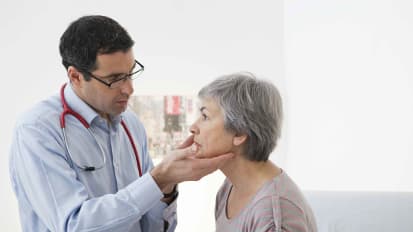 Video
Video
Strategies for Head and Neck Cancer: What to Look, Feel and Listen For
UCSF specialist Chase Heaton, MD, presents a guide to identifying head and neck cancers, including steps, tools and tips for a comprehensive exam; alarm-bell statements from your patients; and the one assumption you want to make about any neck lump. Video
Video
All About Allergies: Successful Diagnosis and Treatment
This breakdown of common allergies provides clarity on which patients to test and which tests to choose; how to effectively manage chronic allergies, such as allergic rhinitis; as well as signs and solutions for the many types of adverse food reactions. Video
Video
Look Beyond Symptoms: When to Test for Pituitary Tumors
Tumors of the body’s “master gland” cause various symptoms – headaches, depression, sexual dysfunction, vision loss – that doctors often attribute to other conditions. UCSF endocrinology and neurosurgery specialists discuss keys to identifying patients as well as the merits of telehealth referrals in the time of COVID.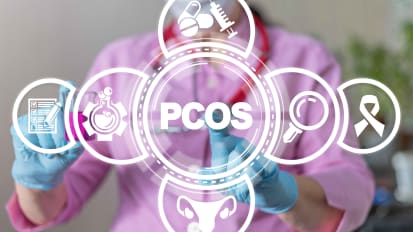 Video
Video
PCOS in Primary Care
This common, multisystem disorder affects individuals differently, and doctors commonly miss the diagnosis. Dr. Heather Huddleston, director of the UCSF PCOS Clinic, presents an update to enable quicker detection as well as the development of care plans to support overall health and future fertility.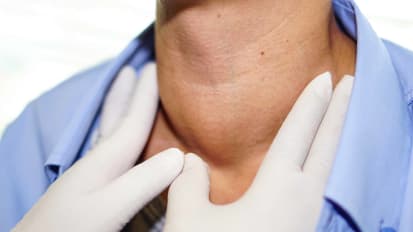 Video
Video
Neck Knowledge: Diagnostics and Care for Growths in Adults
Dr. Patrick Ha, UCSF’s chief of head and neck surgical oncology, breaks down the neck’s complex anatomy and provides a case-based discussion of common growths – including developmental cysts, salivary gland disorders, thyroid masses and HPV-related cancers. Included is a useful diagnostic flowchart. Video
Video
Epilepsy Illuminated: How to Define, Diagnose and Distinguish Seizures
Neurologist Manu Hegde, MD, PhD, guides primary care doctors through the steps to follow for a seizure-like event, from getting an accurate history and differentiating epilepsy from other possibilities to selecting tests and categorizing your diagnosis. He also offers guidance on monitoring. Video
Video
A Wake-Up Call on Restless Leg Syndrome: Common, Life-Affecting and Treatable
Neurologist and sleep medicine specialist Liza Ashbrook, MD, presents a quick, thorough lesson on RLS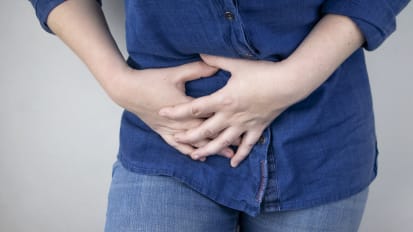 Document
Document
Virtual Second Opinion for IBD Patients Now Available
Now you can schedule a virtual second-opinion consult for any patient with IBD, including Crohn’s disease, ulcerative colitis, pouchitis and IBD-undetermined.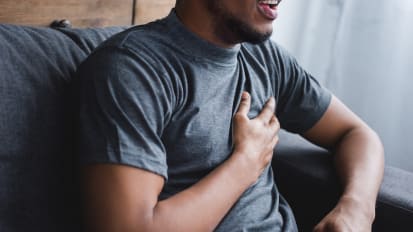 Video
Video
COVID Fear and Heart Attacks: Addressing New Obstacles to Care
COVID fear has worsened outcomes for the most dangerous type of heart attack. Interventional cardiologist Krishan Soni, MD, discusses how to respond to the new obstacles and reestablish safe, efficient pathways to lifesaving treatment.

